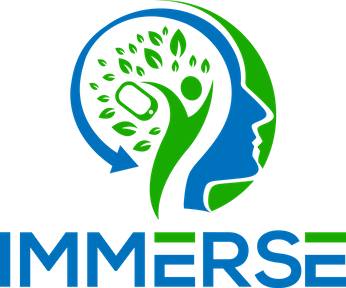Lotte Uyttebroek
PhD student
KU Leuven
08/07/2024
The Critical Role of Clinicians in Advancing Digital Mental Health Technologies
Digital technology has become an integral part of our daily lives, with smartphones always within reach. This offers an incredible opportunity to leverage innovative digital tools to enhance patient care and improve health outcomes. Mobile health (mHealth) apps and blended care interventions, which integrate therapy with digital tools, hold significant promise in making healthcare more accessible and bridging the gap between therapy sessions and everyday life.
The Experience Sampling Methodology (ESM) offers a compelling way for service users to reflect on their emotions and daily life experiences throughout the day – something that is often neglected in the busy flow of life. By using smartphone prompts, ESM encourages individuals to pause and reflect, providing a structured moment for introspection. Integrating ESM into psychotherapy makes it easier to share these real-life experiences without having to ‘dig’ through memories from the past week or two. Integrating ESM is not only helpful to share real-world experiences; it can also increase self-insight, empowerment and engagement in the therapeutic process. However, realizing the promise of ESM is not as straightforward as it seems.
Implementing and scaling digital technologies in healthcare is a complex endeavor. It involves more than just deploying the technology itself; it requires careful consideration of how these tools fit into specific healthcare settings and how clinicians and service users perceive and interact with them. Clinicians are crucial in this process, as they are vital for service users to gain access and use these digital interventions. For example, integrating ESM in clinical care requires more than just prompting service users to reflect and report their daily-life experiences. It requires clinicians to navigate through a service user their real-life and real-time data. They have to integrate their analysis into sessions, thereby translating data into a coherent narrative that can be discussed collaboratively with the service user. Thus, understanding the complexities of integrating digital health tools into clinical practice requires a deep dive into the clinicians’ perspectives and the nuances of their work environments. By doing this, we can better support both clinicians and patients in embracing these technologies, ultimately improving mental health care for everyone.
Within the IMMERSE project—and as part of my PhD—I plan to focus on two main objectives.
Firstly, I aim to identify potential factors that either support or hinder the adoption of Experience Sampling Methodology (ESM) in specific health settings. This will involve analyzing qualitative interviews conducted with clinicians and healthcare administrators across different countries. Importantly, I am collaborating with my international IMMERSE colleagues to uniquely explore variations in these factors across various stakeholders and countries. This comprehensive approach represents a novel contribution to the field, as integrating diverse cultural perspectives within a single study has not yet been done before.
Secondly, I aim to delve deeper into the practical implementation of ESM at the clinician level. Specifically, I aim to investigate whether the factors identified in my initial research truly influence how ESM is implemented in real-world scenarios. This investigation is crucial in implementation research because, as observed clinically, intentions and desires do not always translate into expected behaviors. Take New Year's resolutions, we often set ambitious goals, yet meaningful change can be elusive, and we often find ourselves in familiar patterns before long. Therefore, my goal is to uncover the actual impact of these factors across the four European countries where our study is taking place. Ultimately, directing resources towards factors that demonstrate efficacy will facilitate the implementation and enhancement of care.
Taken together, I believe that grasping clinicians' perspectives on implementation factors alongside the intricacies of their work environments is pivotal in seamlessly integrating digital tools into clinical practice. This deeper understanding empowers us to navigate complexities and craft tailored implementation strategies that unlock the full potential of Experience Sampling Methodology (ESM). By doing so, we not only enhance patient care but also pave the way for transformative improvements in healthcare delivery.


